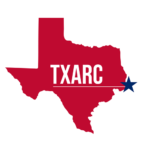HB2725, as written and introduced in the Texas House of Representatives, is dead. Some people won’t tell you that. We will. It died on April 15, 2019, when it failed to secure enough votes to be reported out favorably from the House Public Health Committee.
Yesterday TXARC sent a letter to Representative Gina Calanni, the primary author of the bill, asking her to discontinue support of HB2725. This is generally what we said, which we also discussed with other aides and legislators.
The lack of support of HB2725 from the Public Health Committee indicates that a genuine adoptee rights bill cannot succeed this session. This was not the case in recent years, especially in 2015 when a nearly identical bill passed unanimously out of two committees and passed the House on a vote of 138 to 1. In many respects Texas is getting closer to enactment of a genuine adoptee rights bill and the opposition has become more organized in defeating it. It was, in fact, TXARC’s preference this session not to introduce a bill and instead use the time to educate the public and legislators, with a goal to reintroduce a clean bill in 2021. This was a decision prompted by key leaders in the legislature who advised us over the past year to “take a session off.”
We now understand that two amendments may be under discussion concerning HB2725. One would eliminate birthparent contact preference provisions in the bill and the other would add birthparent veto or redaction options. TXARC cannot accept these amendments for the following reasons:
- While we would normally not oppose a bill that eliminates a contact preference form, removing the CPF from HB2725 does not address oppositional concerns. Rather, it allows the bill to be “cleaner” and thus more easily amended on the House floor without any real control over new language added to it. That language will most certainly be discriminatory provisions that will utilize the Central Adoption Registry, add birthparent vetoes or redaction requests, or both.
- Amending the bill to add birthparent vetoes or redaction requests would have far-reaching and negative consequences for generations and would also impact this issue in states across the country. First, it would continue to incentivize the use of DNA testing and social media, continuing the current trend that makes our own information available for public consumption. More significantly, it will undermine Texas law and be a regressive step backward, eliminating provisions that currently allow an adult adopted person to obtain his or her own OBC if they know the names of the birthparents listed on it. Redacting those known names—or prohibiting release of known names to include our own birth names—would not only be inequitable for adoptees, but it would also be absurd.
The Texas Adoptee Rights Coalition represents a successful state-wide coalition that has brought organizations together to work on a single issue. TXARC and its member organizations have committed in writing to “to restore the right of all Texas adult adoptees to obtain their original birth certificates without discriminatory conditions or restrictions.” That is bottom-line equality, and it means equality for all adoptees. Thus, discriminatory provisions that alter an original birth certificate or withhold it from adults has no place in our work.
This is why we have called the bill dead. Because it is. It should not be revived to pursue a solution that is only good for one advocate and a single state senator. Any revived bill at this time will, by the end of the session, only prove badly inequitable for all Texas adult adoptees. Bury HB2725. Let’s come back again later, but this time united around a single bottom line: equality for all adoptees.


 The Texas Adoptee Rights Coalition is a coalition of Texas and national organizations working to secure the right of all Texas adult adoptees to obtain their own original birth certificates, without discriminatory restrictions.
The Texas Adoptee Rights Coalition is a coalition of Texas and national organizations working to secure the right of all Texas adult adoptees to obtain their own original birth certificates, without discriminatory restrictions.